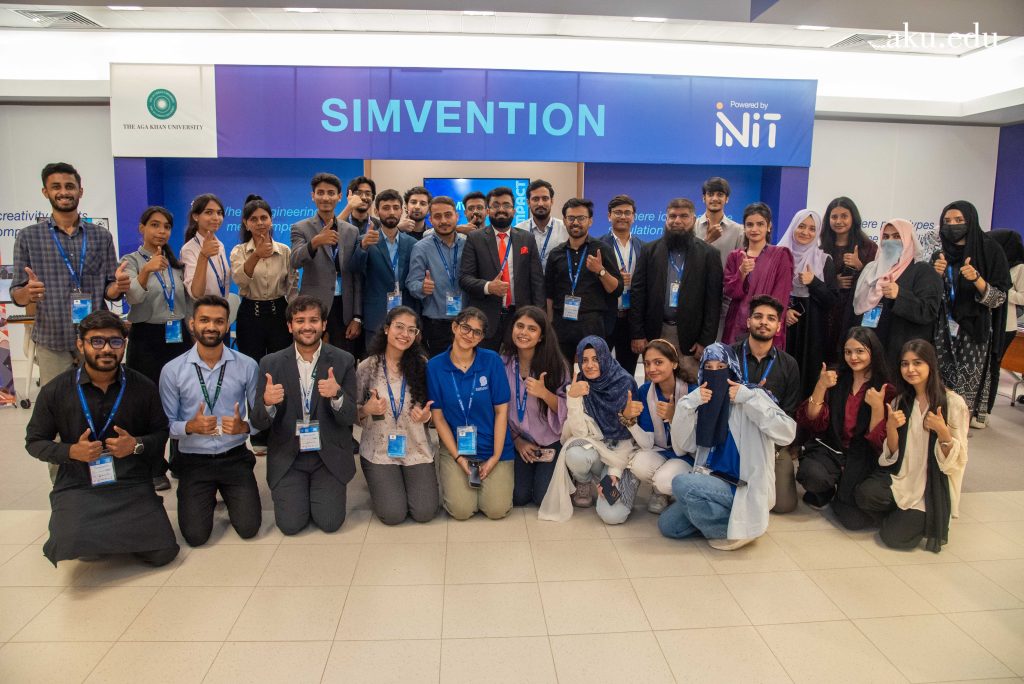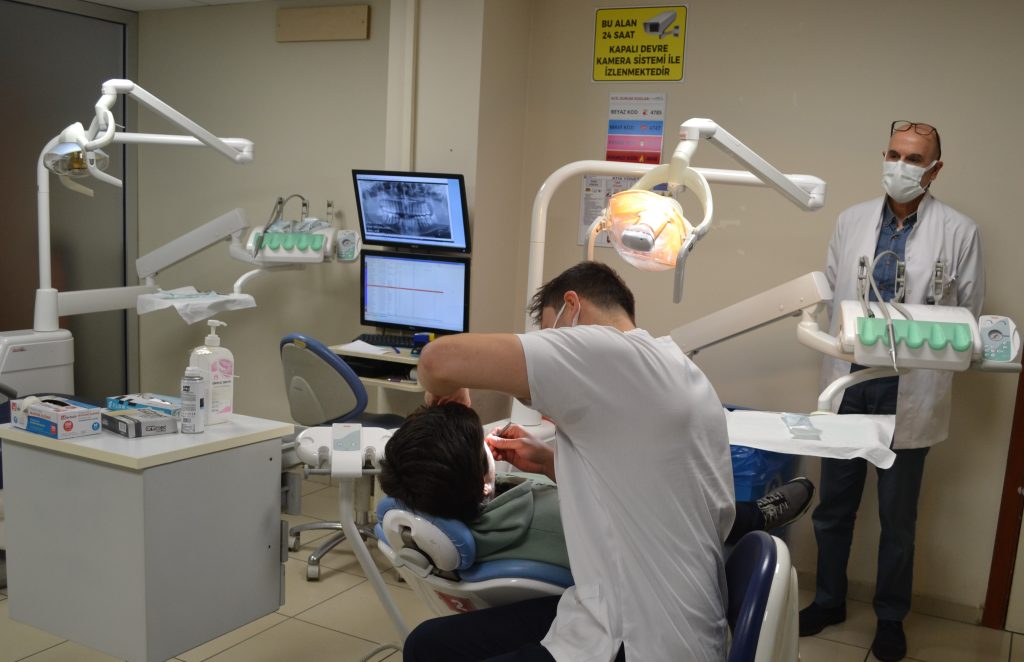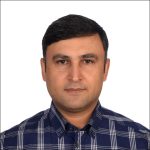In this engaging episode of the SimMoove podcast, host Fouad Marhar speaks with Jean-François Ringeval, a figure whose career in healthcare simulation has spanned military, academic, and now industry settings. Jean François’s unique journey offers insights into the evolving world of simulation-based medical training, the challenges of building a career in this niche field, and the global trends shaping the future of healthcare education.
A SIMZINE exclusive based on SIM Moove podcast interview with Jean-François Ringeval
Fouad Marhar interviews Jean-François Ringeval, a seasoned expert in healthcare simulation with a unique background spanning military service, global simulation leadership, and industry experience. Ringeval shares his journey from nursing in the French military to becoming an international advocate for simulation-based medical education. Through personal anecdotes and insightful reflections, he highlights the importance of mentorship, the challenges of imposter syndrome, and the global trends shaping simulation, including diversity, equity, and inclusion. This conversation offers invaluable lessons for anyone passionate about advancing healthcare through simulation.
Early Beginnings in an Unexpected Place
From his early fascination with flight simulators in the 1980s to his current role at Elevate Healthcare (formerly CAE Healthcare), Jean François’s journey offers unique insights into the global landscape of healthcare simulation.
“I fell into the simulation pot very young, like Obelix,” Jean François jokes, referring to his first encounter with flight simulators in the mid-80s. “Despite the jerky images, I was fully immersed. In my room, I was flying.” This early experience with simulation would prove prophetic, as Jean François’s career would later come full circle when he joined CAE, a company known for both flight and healthcare simulation systems.
From Military Service to Simulation Pioneer
The path from those early days to becoming an international simulation expert wasn’t direct. Jean François first served as a military nurse in the French armed forces health service, where he gained extensive field experience. His formal introduction to healthcare simulation came in 2003 through a course in hostile environment medical care, led by Professor Petit and Didier Vautrin. This experience exposed him to large-scale simulation with exceptional resources, laying the groundwork for his future career.
A pivotal moment came in 2009 when Jean François joined CITERA (now CESimMO), a military center focused on training medical teams. Working alongside Professor Bruno Debien, he helped transform the center’s teaching methodology. “When Bruno saw me arrive in military fatigues instead of scrubs, he wondered who they’d sent him,” Jean François recalls with amusement. “But we grew together, tested new approaches, and kept pushing boundaries.”
In the early 2010s, healthcare simulation was still in its infancy, particularly in France. Jean François describes this period as a turning point in his career, as he decided to fully embrace simulation not just as a training tool, but as a lifelong vocation. He began formal training under François Lecomte, a pioneer in French simulation, and later expanded his expertise through international experiences.
Eventually, his path led him to join CAE, a company known for its cutting-edge simulation technologies, including flight simulators and healthcare solutions. Jean François notes the irony of returning to a company that initially focused on aviation simulation, but had since evolved to become a leader in healthcare training. Today, he works for Elevate Healthcare, which is dedicated to advancing medical simulation.
Global Perspectives on Healthcare Simulation
One of the most striking aspects of Jean François’s perspective is his global view of simulation practices. Having worked across multiple continents, he emphasizes that while implementation may differ, the core challenges remain surprisingly consistent. “Whether you’re in the United States, Canada, Europe, North Africa, Africa, the Middle East, or Asia, nursing staff are always the pivotal team in terms of care,” he observes.
Fouad probes Jean François about the differences he has observed between simulation practices in France and abroad. While France has made significant strides in adopting simulation-based education, Jean François emphasizes that other countries are often more advanced in certain areas. “In France, we tend to think we’re not quite at the level of other countries, but I want to reassure our healthcare professionals: we are doing excellent work,” he says. However, he also notes that some countries have invested more heavily in simulation, both in terms of resources and personnel.
Countries like India, which Jean François describes as a surprising leader in simulation, have developed extensive networks and dedicated teams to support simulation-based education. One key difference, he observes, is the emphasis on full-time simulation roles in other countries. “In many places, the first full-time hire for a simulation center is the manager, followed by technical staff, and then educators. It’s a structured approach that we don’t see as often in France,” he explains.
This structured investment in both human and technical resources is critical to maximizing the impact of simulation, Jean François argues. He points out that in countries like the United States and India, the return on investment (ROI) in simulation is carefully measured, not just in terms of financial gains, but also in improvements to healthcare outcomes and reductions in medical errors. “In France, we need to start thinking more about ROI in our simulation programs. It’s not just about money; it’s about the impact on patient care,” he adds.
Fighting the Imposter Syndrome in Healthcare Simulation
A recurring theme in Jean François’s conversation with Fouad is the concept of “imposter syndrome,” which affects many healthcare professionals who transition into simulation education. This feeling of inadequacy, particularly when entering a new field like simulation, can be overwhelming. Jean François acknowledges that he too struggled with this as he moved from clinical practice into full-time simulation work.
He credits mentors like Amanda Wilford (A.KA. Mandy), a British expert in healthcare simulation, with helping him overcome these challenges. Amanda, who has become a leading figure in healthcare simulation education, encouraged Jean François to believe in his skills and to push beyond his comfort zone. “Amanda told me, ‘You know more than you think. Trust yourself and go for it,’” Jean François recalls.
For those new to the field, Jean François’s advice is simple: “Believe in your dreams and give yourself the means to achieve them.” He encourages aspiring simulation educators to seek out mentors, network with experts, and continuously learn from others. “Don’t be afraid to reach out to people, even if you think they’re out of your league,” he says, noting that the simulation community is incredibly supportive and willing to help newcomers.
Breaking New Ground: DEI in Simulation
Looking toward the future, Jean François highlights an emerging trend in simulation: the integration of Diversity, Equity, and Inclusion (DEI) principles into scenarios. This goes beyond race and gender to address healthcare access disparities, cultural competency, and unconscious bias among healthcare providers. “We’re creating scenarios that help healthcare professionals recognize and overcome their cognitive biases,” he explains, citing examples like the different treatment approaches for patients based on appearance or cultural background.
The impact of DEI in simulation training is particularly relevant in today’s healthcare environment. Jean François shares a striking example: studies have shown that healthcare professionals may unconsciously prioritize treating a young, healthy-appearing athlete with a minor injury over a morbidly obese patient with respiratory distress. Through carefully designed simulation scenarios, these biases can be identified and addressed.
The Role of Industry in Advancing Healthcare Education
Jean François’s current position at Elevate Healthcare represents the valuable intersection between clinical expertise and technological innovation. His collaboration with figures like Amanda Wilford, who recently transitioned from industry to academia as one of England’s first nurse assistant professors in simulation teaching, exemplifies how careers in simulation can evolve and impact healthcare education globally.
The industry connection provides unique opportunities to bridge theory and practice. Through companies like Elevate Healthcare, innovations in simulation technology can be directly informed by clinical needs and educational objectives, creating more effective training tools for healthcare professionals.
Advice for the Next Generation
For those looking to advance in the field of healthcare simulation, Jean François’s advice is straightforward: “Trust yourself and believe in your projects. There will always be someone telling you it’s not possible – go for it anyway.” He encourages newcomers to leverage available resources, from podcasts to & to hesitate to reach out to experts in the field.
This mentoring mindset is crucial for the field’s development. Jean François emphasizes the importance of networking and continuous learning, noting that even the most prominent experts in the field are usually willing to share their knowledge and experience with newcomers.
Looking to the Future of Simulation
The interview reveals a field that’s rapidly maturing, with France contributing significantly to global best practices while also having room to learn from international approaches. As healthcare simulation continues to evolve, professionals like Jean François demonstrate how passion, coupled with a willingness to embrace change and cross-cultural exchange, can drive innovation in healthcare education.
The future of healthcare simulation appears bright, with increasing emphasis on professional development, technological advancement, and inclusive practices. Jean François’s journey from military medicine to global simulation leadership illustrates the field’s dynamic nature and its potential to transform healthcare education.
The conversation with Jean François offers a compelling glimpse into the future of healthcare simulation – one where technology, pedagogy, and human factors converge to create more effective and inclusive learning experiences for healthcare professionals worldwide. As the field continues to evolve, the lessons and insights shared by pioneers like Jean François will help shape the next generation of healthcare simulation professionals.
Full conversation available in French on SIM Moove
READ ALSO












































